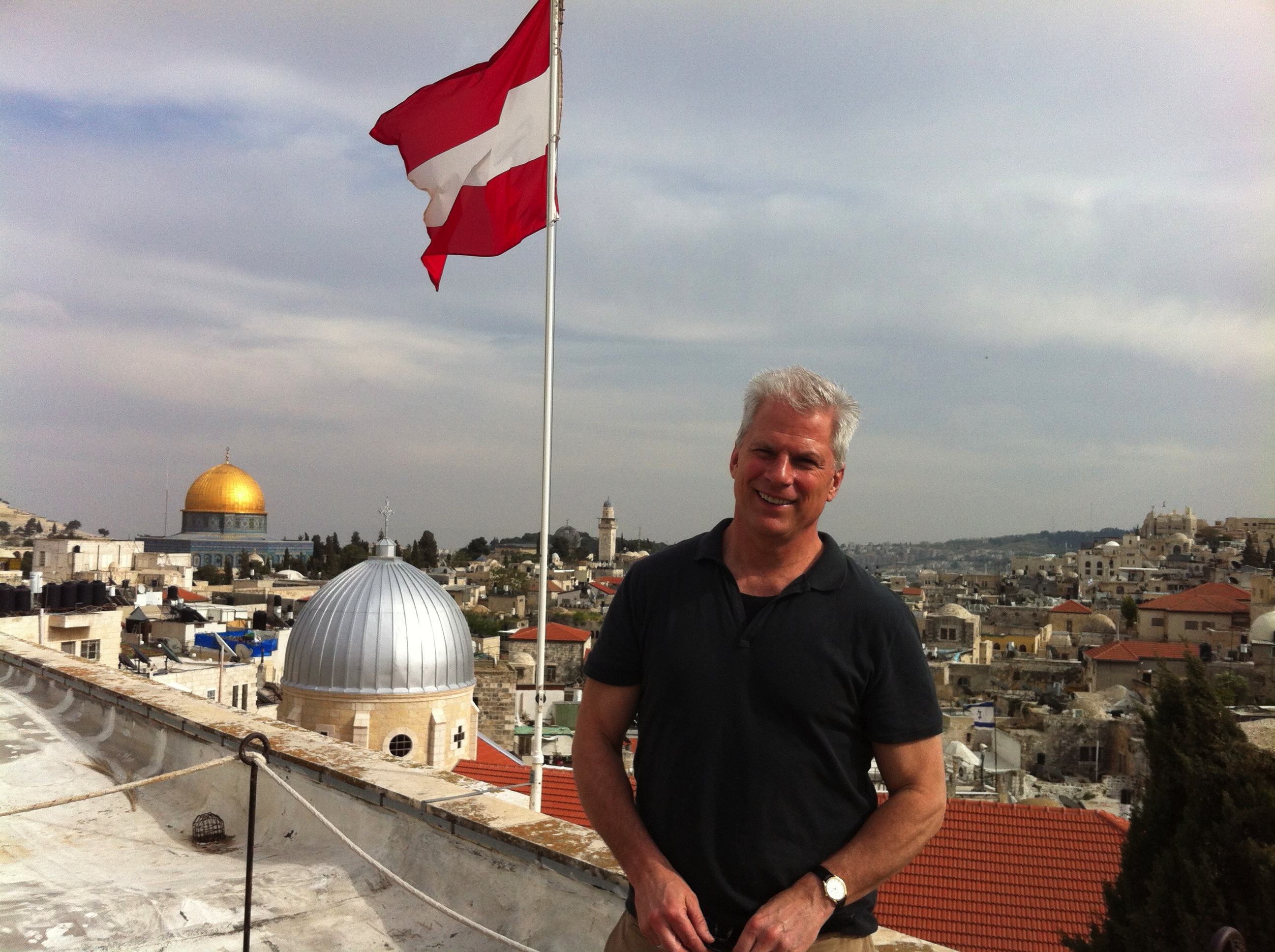Back in town for a visit after a year of government-supported work on the West Bank, John McKay revealed last night that he is taking another surprising turn in his evolution. Standing on stage at Seattle University’s Pigott Auditorium, the onetime Republican U.S. Attorney, who went on to become a critic of George W. Bush, SU law professor and marijuana legalization advocate, began a talk on his Middle East experiences by asserting: “I know what I say will be controversial.” Then he quoted Gloria Steinem: “The truth will set you free but first it will piss you off.”
What could indeed piss a number of Israeli supporters off is his passionate articulation of Palestinian oppression—one he compared with that of Northern Irish Catholics in times past. The semi-serious subtitle of his talk was “How the Irish May Save Palestine.” Leave it to McKay, the proud scion of a large Irish Catholic family, to bring in the Irish. (As a Jew married to a Catholic Northern Irishman, I’m personally up for this comparison.)
He’s not just going off his ethnicity, though. He has travelled and taught in Ireland, and his comparison is instructive. It rests on the military occupation carried out both in Northern Ireland and Palestinian territories, which he holds was and is an untenable situation.
In a short history lesson, he ran through how it played out in Northern Ireland at the hand of the British: detentions without trial, trials without juries and unlimited military authority to make arrests, seize lands and ban meetings.
His description of life on the West Bank was even more powerful, and personal. McKay recounted how he was a lifelong Israel supporter but had never been to the Middle East until he was appointed director of the U.S. State Department’s “rule of law” program, which works with Palestinian lawyers, prosecutors, police and the courts to build up the legal infrastructure of their lands.
Arriving in the West Bank town of Ramallah, he said he found incredible beauty, hospitable people, fantastic food and “complete domination” by the Israeli military–entrenched by legal proclamation and publicized by signs at the border warning those who enter the West Bank that their lives might be in danger. “There is a constant fear of arrest. I felt this myself,” he said. Even children are arrested and bullied into being informants. “Anytime there was any action that could be perceived as a threat, the Israeli military would have absolutely no problem with rolling into Ramallah…to arrest someone or demolish their homes.”
The most affecting moments of his talk came when he described what it was to live there during the recent Israeli attacks on Gaza—an area that he compared to an “open-air prison” because the sea was blockaded and nobody could leave. From his home, roughly 50 miles away from Gaza, he said he could see the rockets fired at Tel Aviv from Gaza. Then came the massive Israeli reprisal attack. He would go to work and “find people weeping at their desks.” Everyone had a relative or friend who had died in the attack.
While McKay acknowledged the terrorism Israel has periodically suffered, and the right of that country to feel safe, he didn’t dwell on that. He was here to talk about the injustice leveled at Palestinians. He was less expansive regarding what to do about that, except that Israel should learn from the Northern Irish experience and put an end to its military occupation. He also endorsed a two-state solution.
He wasn’t exactly optimistic. “There are days when you think, what the hell is the point here? There is never going to be a state of Palestine,” he admitted. And yet he said he had learnt from his Palestinian colleagues that it is worthwhile to take “even a few steps forward.”
If that is a controversial message in some circles, it wasn’t in this packed crowd, drawn in part from Seattle’s legal community. He got a standing ovation.
He returns to town for good next spring.








